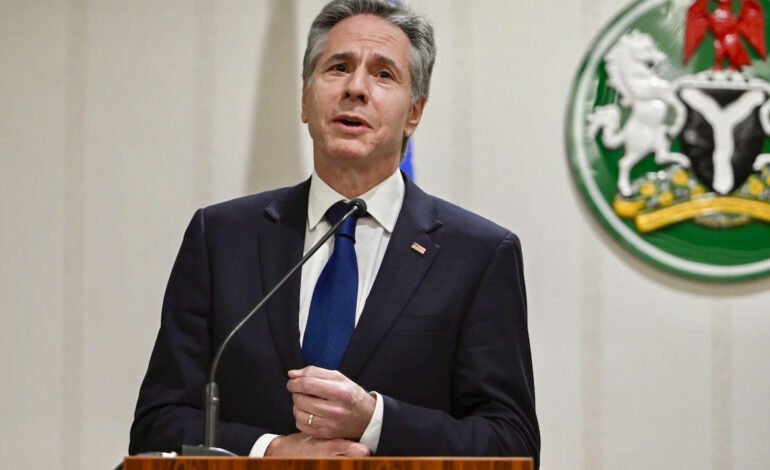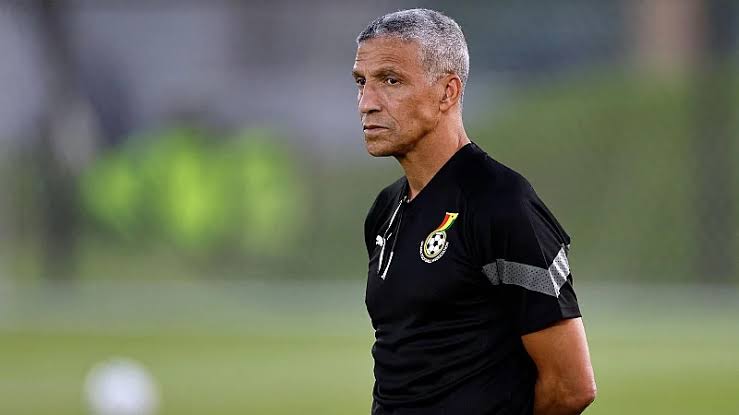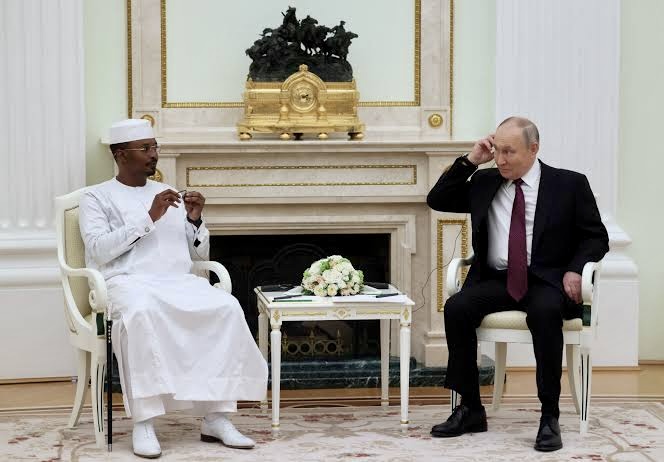
Faith Nyasuguta
U.S. Secretary of State Antony Blinken, currently on an Africa tour, has highlighted the United States as a superior security ally for Africa than Russia, particularly in the Sahel region, where he criticized Russia’s Wagner mercenary group for exacerbating instability in coup-affected and conflict-ridden nations.
During his visit to Nigeria, Blinken expressed the U.S.’s commitment to supporting Nigeria and other regional partners in stabilizing the Sahel, an area south of the Sahara Desert plagued by Islamic extremist groups.
Addressing reporters in Abuja, he specifically mentioned Niger, where a recent coup jeopardized years of Western and European support.
“We hope it can make a difference in restoring the constitutional order and restoring a critical partner in trying to find security in the region,” Blinken remarked, underscoring the importance of reinstating stability in the wake of the coup in Niger.
Niger, previously a key player in U.S. counterterrorism efforts in the Sahel, faced sanctions and severed military ties with European nations after the coup.
Turning to Russia, particularly the Wagner group, for security collaboration, Niger’s decision mirrored similar moves by Burkina Faso and Mali, which also experienced multiple coups since 2020.
Wagner, active in African regions like Mali, became a pivotal source of support for Niger’s military leaders post-coup. Blinken expressed concern over the deteriorating security situation in countries where Wagner operates, emphasizing the exploitation of people and resources.
“In those African countries where Wagner is offering security support, what we’ve seen is actually a problem (of insecurity) getting manifestly worse and worse,” Blinken stated, highlighting the negative impact of Wagner’s involvement.

Acknowledging the challenge, Blinken outlined key elements of U.S. support to Nigeria and the broader Sahel region. This support includes strengthening the capacity of local security forces through equipment and technology provisions, intelligence sharing, and technical assistance.
Emphasizing a comprehensive approach, Blinken stressed the importance of focusing on citizens’ security and building partnerships with local communities.
“It goes to having a comprehensive approach that genuinely focuses on citizens’ security, working with local communities in partnership, demonstrating the security forces that are there, first and foremost, to protect them and to support their needs,” he added.
As some observers note a perceived lack of attention to African issues under the Biden administration, Blinken’s visit provides an opportunity to advance partnerships and strengthen democratic institutions in the continent.
Oge Onubogu, director of the Africa Program at the U.S.-based Wilson Center think tank, highlighted the need for the U.S. to engage in constructive discussions with civil society actors, regional think tanks, and government officials to address both recent coups and the root causes driving military takeovers.
“This trip presents an opportunity for the U.S. to have real constructive discussions with civil society actors, think tanks in the region and some government actors about how to adapt to systems that we currently have to transition to something that is in the best interest of African citizens,” Onubogu emphasized, urging a comprehensive approach to promote positive change in the region.
RELATED:




